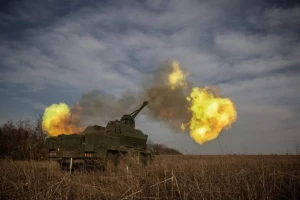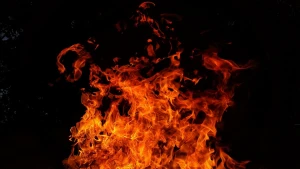
Russia's sexual crimes in Ukraine. What help do Ukrainian victims need?
Since the start of the full-scale invasion, Ukraine and the world have seen Russia’s shocking brutality and blatant disregard for international law. The aggressor's military strategy now includes systematic violations of humanitarian law, countless atrocities, and the terrorizing of the Ukrainian people
The material was prepared in collaboration with the International Charitable Foundation Ukrainian Women's Fund and the Global Survivors Fund.
As of October 1, 2024, Ukraine's Prosecutor General’s Office recorded 321 cases of conflict-related sexual violence (CRSV). According to UN estimates, the number of unreported cases is 10 to 20 times higher. Under international law, CRSV crimes include rape, sexual slavery, forced prostitution, forced pregnancy, forced abortion/sterilization/marriage, and any other form of sexual violence of comparable severity, directly or indirectly linked to the conflict.
Law enforcement agencies report that the first cases of sexual violence against Ukraine's civilian population were documented at the start of the aggression in eastern Ukraine in 2014. However, since February 24, 2022, the scale of such acts by Russian troops has grown unprecedentedly.
Today, Ukraine has a complex system for investigating CRSV crimes and providing assistance to victims. Combating sexual crimes by the Russian military in Ukraine requires close coordination between government agencies, law enforcement, representatives of civic and international organizations, journalists, and volunteers. According to Fedor Dunebabin, joint representative in Ukraine of Nobel laureate Dr. Denis Mukwege's Foundation and the Global Survivors Fund, the system is overly complex and, in some cases, insufficiently effective.
"The biggest challenge for service providers, including the government, social support services, civic and international organizations, and law enforcement agencies, is the coordination of their actions. It often happens that some services are duplicated, or the referral mechanism fails, where certain organizations cannot provide the needed assistance to victims due to a lack of resources and are unaware that another organization with the necessary capabilities and funding can step in.
This creates a significant issue in humanitarian response, as the system consumes many resources. Each organization has its staff, operational, and administrative costs, yet victims are unable to receive the necessary help in full and in a timely manner," the expert explains.
Despite ongoing improvements, the assistance system remains insufficiently effective, lacking coordination and feedback mechanisms to respond more quickly to the needs of victims and provide them with an optimal range of services. In addition to the mentioned issues, a key challenge in addressing conflict-related sexual violence is the absence of specific legislation.
"We lack targeted legislation that would regulate the efforts of the system aimed at protecting victims. Currently, we have an extensive social protection system that provides assistance to various categories of people in difficult life circumstances, including CRSV victims, but there are no specialized rehabilitation, assistance, or protection programs for this category of people. In most cases, international and civic organizations take the initiative in this area," says Olena Maslova, project manager for the Global Survivors Fund in Ukraine.
At present, two bills are being prepared for a second reading in the Verkhovna Rada: Bill No. 10132 "On the Status of Persons Affected by Sexual Violence Related to the Armed Aggression of the Russian Federation Against Ukraine and Urgent Interim Reparations" and Bill No. 10256 "On the Registration of Persons Whose Life and Health Were Harmed as a Result of the Armed Aggression of the Russian Federation Against Ukraine." These bills aim to define the term CRSV, categorize victims, establish a unified system for providing psychological, medical, legal, and social assistance to victims, and regulate the provision of urgent interim reparations, which are measures aimed at addressing the consequences of CRSV and preventing further harm.
If Bill No. 10132 is passed, victims will gain the right to monetary compensation and urgent interim reparations. These reparations include providing victims with access to legal remedies, compensation, rehabilitation, and restoration of moral and material damages. Access to these resources would be granted through an appeal to a commission that will be established at the national level.
These bills will ensure satisfaction for victims, especially those who, after long periods of waiting, have lost trust in the protection system. In certain cases, they may also encourage victims to begin cooperating with law enforcement to document crimes.
The development of these bills included a mandatory preliminary analysis and adaptation of international experiences in combating CRSV and protecting victims. According to the expert, this is currently the most effective way to apply the experience of partner countries, given the different socio-political contexts.
"For example, Bosnia and Herzegovina’s experience is of limited use to Ukraine, as we are more practical in protecting victims, even while still in a state of war. Croatia’s experience, on the other hand, is especially valuable for building the necessary institutional infrastructure. If these bills are passed, following Croatia's example, a separate body or commission will be established in Ukraine to officially recognize victims," emphasizes Olena Maslova.
Regarding the problem of comprehensive support for Ukrainians who have suffered from conflict-related sexual violence, the expert highlights the following urgent needs:
- Safe place for victims;
- Medical assistance;
- Long-term psychological support;
- Legal assistance;
- Help with employment and reintegration into society.
Medical, psychological, and legal services for victims remain the most in-demand, though it is difficult to assess the accessibility of these services.
"We communicate extensively with victims, and they often complain about the lack of concrete assistance from the state. This issue is most often related to the overburdening of government agencies, the absence of specialized institutions, and a lack of legislation. Despite the relatively active work of authorities in Ukraine in addressing conflict-related sexual violence (CRSV), it remains difficult for the state to guarantee a human-centered approach due to the overload on service providers or their insufficient numbers. On the other hand, victims are not always aware of the services available to them. For example, they might not know that they can already access temporary shelter or psychological support from mobile teams under existing legislation and networks of specialized services for survivors of domestic and gender-based violence. Thus, another issue here is a lack of awareness."
When victims do seek help, there is a risk of re-traumatization. Therefore, specialists working with CRSV survivors need continuous training on how to communicate and behave appropriately with this category of individuals. It's important to remember that any seemingly minor detail—whether it's the location of the meeting, the specialist’s clothing, or even careless phrases or gestures—can trigger traumatic memories.
Specialists must always take into account the individual circumstances and the situation the victim has experienced due to their psychological and emotional vulnerability. Unfortunately, cases of re-traumatization often occur due to the incompetence or inappropriate communication from service providers.
"I believe there are not enough trained specialists in Ukraine today working on sexual violence issues. Therefore, we need to work comprehensively here as well: establishing a separate infrastructure, ensuring motivation, and providing opportunities for service providers to improve their qualifications," says the expert.
Finally, it is crucial not to overlook the importance of support from Ukrainian society for victims. This primarily involves raising awareness among Ukrainians about CRSV issues and explaining the specifics of sexual crimes and the available support options for survivors. Creating a culture of support and understanding within society will take time, but the necessary changes for effectively protecting victims can be initiated by the state today.
"Of course, changes of this scale don't happen overnight. They require systemic efforts and time. One of the strategic goals of the Global Survivors Fund is to scale up the results of our Pilot Project on providing urgent interim reparations to Ukrainian survivors and to transfer our experience to Ukrainian state bodies. Fortunately, our initiatives are actively supported and implemented in partnership with the Government of Ukraine, as only the government can take responsibility for establishing specialized infrastructure, amending current legislation, and developing effective tools to protect victims at the state level," emphasizes Olena Maslova.
- News












































